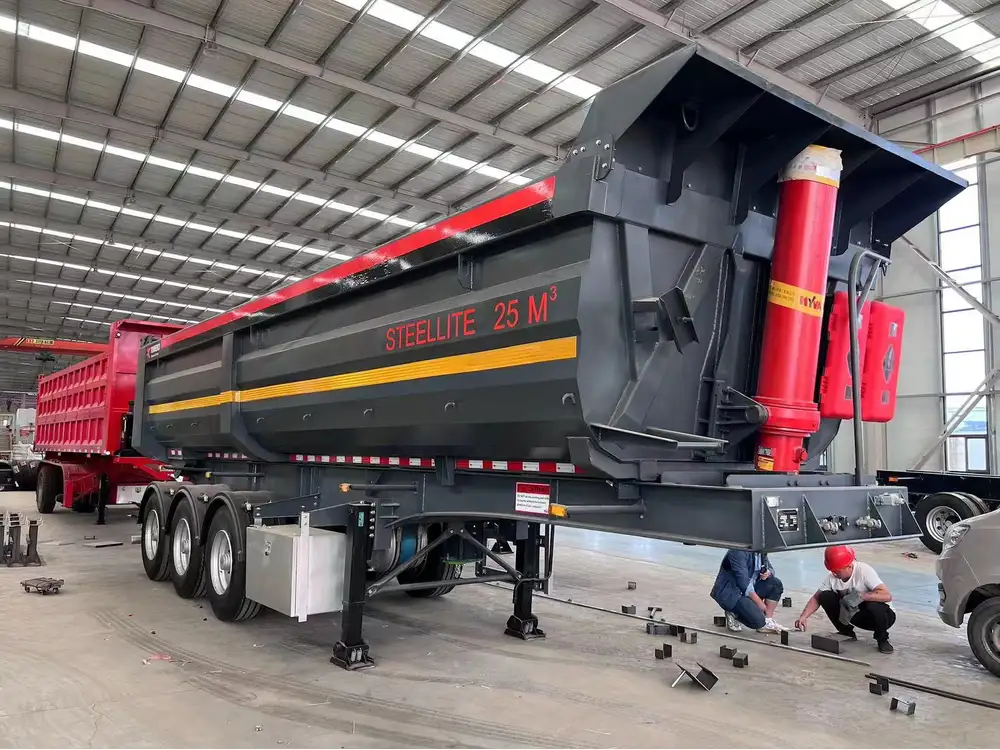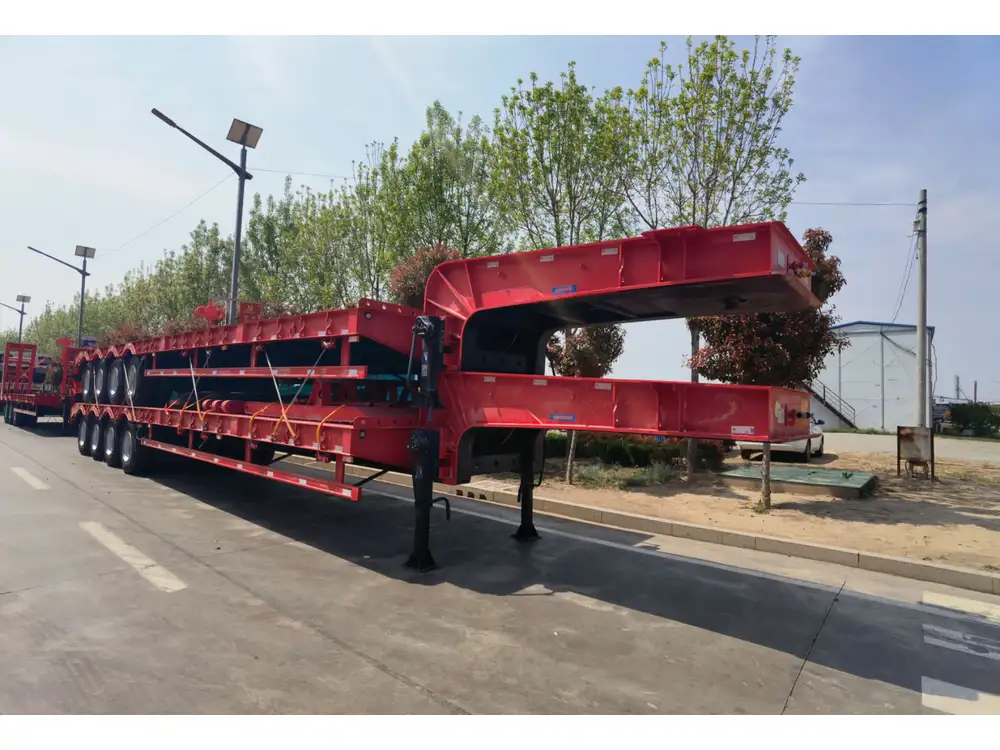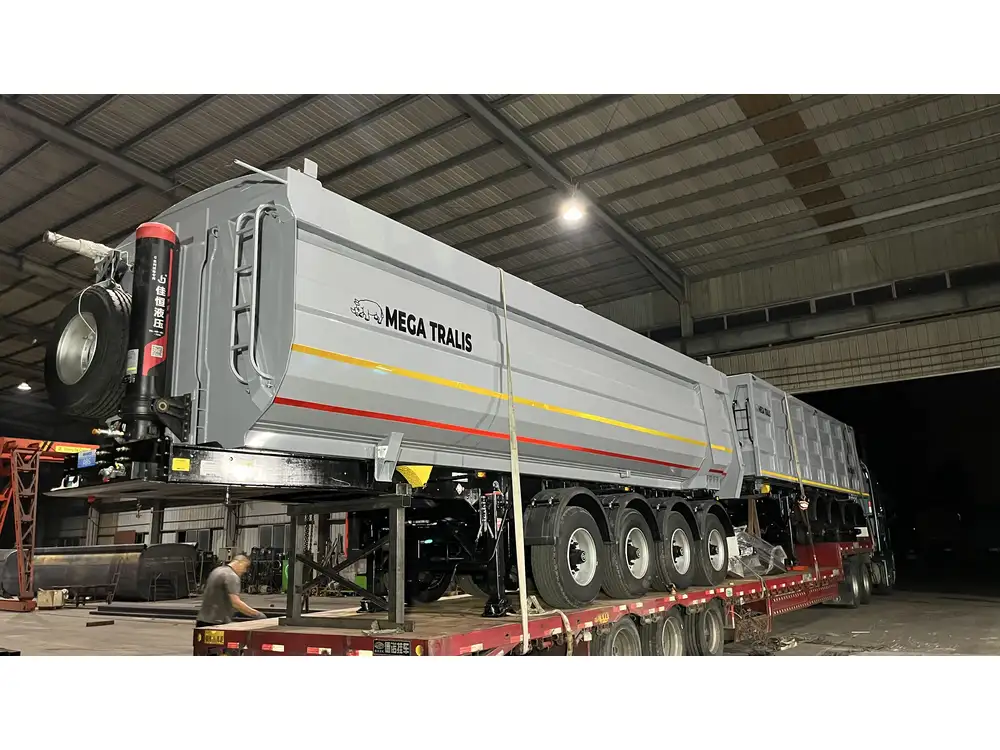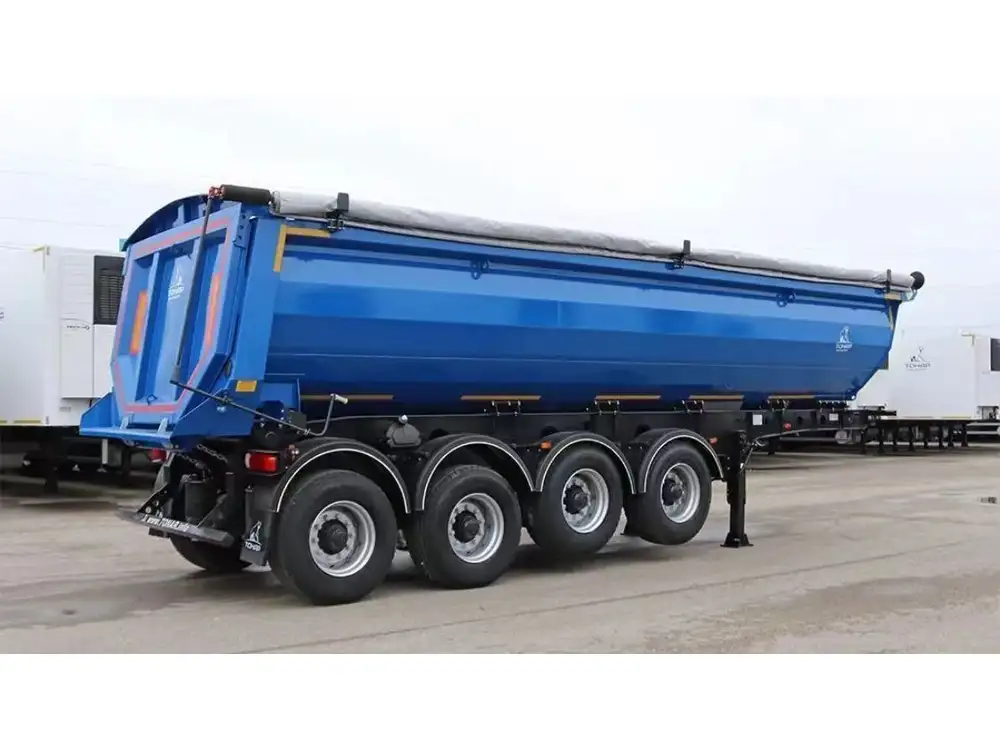When operating semi-trailers, maintaining optimal performance is crucial for both safety and efficiency. One pivotal component involved in the operation of dump trailers is the dump valve. Unfortunately, these valves can deteriorate and fail, leading to significant issues down the line. Understanding why the trailer dump valve goes bad can help prevent costly repairs and operational downtime. Here, we dissect the common causes of dump valve failure, the signs of a faulty valve, and methods to extend its lifespan.
Common Causes of Dump Valve Failure
1. Contaminated Air Supply
Contaminated air can wreak havoc on pneumatic systems. Common contaminants include:
- Dust and Dirt: These particles can infiltrate the system, causing wear and obstructing functionality.
- Moisture: Water vapor condenses inside air lines, rusting internal components of the dump valve.
- Oil and Grease: Excess lubricants can lead to gum and sludge in the valve mechanisms.

2. Wear and Tear
With continuous use, the dump valve naturally experiences wear. Common forms of deterioration include:
- Seal Degradation: The rubber or polymer seals within the valve can crack or harden, leading to leaks.
- Corrosion: Metal components can rust due to exposure to moisture or contaminants.
- Mechanical Failures: Springs, shafts, or internal levers can become damaged over time.
3. Improper Installation
A poorly installed dump valve can lead to several complications, including:
- Misalignment: If the valve is not aligned correctly, it may not seal properly, leading to air leaks.
- Inadequate Fastening: Loose bolts can result in vibration-induced wear or detachment.
4. Pressure Issues
Abnormal pressure levels can cause undue stress on the dump valve. Factors contributing to pressure problems include:
- Over-pressurization: Excessive air pressure can lead to component failure or rupture.
- Inconsistent Pressure Regulation: Fluctuating pressure levels can prevent the valve from functioning effectively.

5. Environmental Factors
External elements can exacerbate the wear and tear of dump valves.
- Extreme Temperatures: Both freezing and excessive heat can reduce the effectiveness of seals and lubrication.
- Harsh Chemicals: Exposure to corrosive substances can deteriorate components quickly.
Signs of a Failing Dump Valve
1. Uneven Dumping
If the trailer does not dump its contents evenly, the valve may be malfunctioning. Inconsistent release indicates potential blockages or leaks within the valve structure.

2. Air Leaks
Hissing sounds or visible air escaping from the area of the valve are clear indicators of failure. This can result in sluggish or incomplete dumping.
3. Difficulty in Operation
If operators notice that the dump valve struggles to open or close, it is likely that internal components have worn down or accumulated debris.
4. Warning Lights
Many modern trailers are equipped with monitoring systems that alert operators to pneumatic issues. If warning lights activate, investigating the dump valve is essential.

Preventative Maintenance Tips
1. Regular Inspections
Conduct regular inspections of the dump valve and its associated components. Look for:
- Signs of wear and tear on seals and mechanical parts.
- Corrosion or rust on metal components.
- Accumulated dirt or debris obstructing valve function.
2. Clean Air Supply
Invest in high-quality air filters to ensure that contaminants are filtered out before reaching the valve. This simple measure can prolong the valve’s lifespan significantly.

3. Ensure Proper Installation
When installing a new dump valve, ensure:
- Correct alignment prior to fastening.
- Proper tension on bolts to avoid vibration and misalignment.
4. Monitor Pressure Levels
Regularly check the air pressure in the system. Keeping pressure within the manufacturer’s specified limits reduces the risk of over-pressurization and associated component failures.
5. Protect from Environmental Stressors
Consider housing the trailer in a protective cover or garage during extreme weather to prevent corrosion and other environmental damages.

Comparing Different Types of Dump Valves
| Type of Valve | Pros | Cons |
|---|---|---|
| Pneumatic Valve | Quick acting, effective for multi-use | Can be affected by air supply quality |
| Electric Valve | Ease of control, less prone to air quality issues | More complex installation and wiring |
| Hydraulic Valve | Greater force and reliability in heavy-duty applications | Heavier and may require more maintenance |
Understanding the differences in resources can help in determining the appropriate type of dump valve for specific needs. Each type has its merits and may perform differently due to various operating conditions and applications.
Conclusion
Addressing the question of why the trailer dump valve goes bad requires a multidimensional approach. By understanding the common causes, recognizing the warning signs of failure, and implementing preventive measures, trailer operators can maintain optimal performance and safety. This proactive strategy not only minimizes the likelihood of failure but also extends the useful life of the trailer dump valve, ensuring reliable operation and safeguarding investment.
Call to Action
For those interested in maximizing the longevity of their dump trailer systems, consider regularly investing in quality parts and setting up a routine maintenance schedule. Always consult with professional manufacturers and service specialists to ensure compatibility and obtain expert advice tailored to your specific needs.



